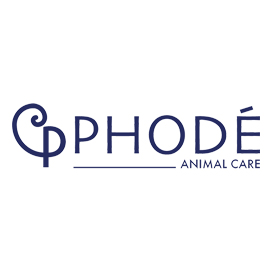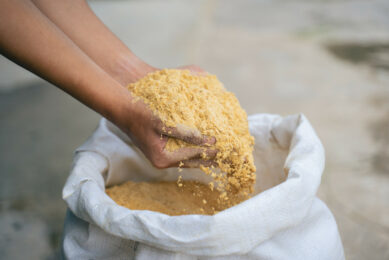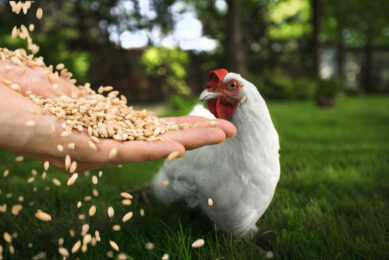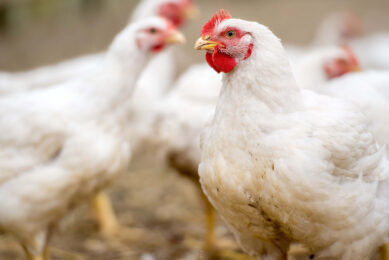Rumen health: A new perspective with spices extracts
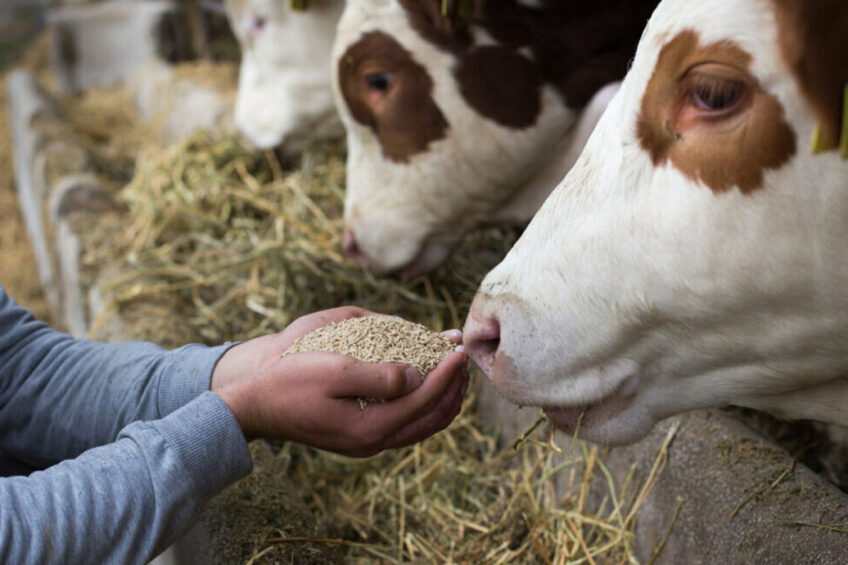
In animal feed, spices extracts are increasingly present in animal feed. In particular, the chili pepper, from the capsicum family, is known for its beneficial effects beneficial effects on feed intake and water consumption in situations of heat stress. Others are also of interest in ruminant feed for other purpose.
Modern livestock farming and the risk of acidosis
Ruminal acidosis is a common metabolic disorder encountered in dairy herds that impair animal welfare, performance, and farm profitability. This metabolic disorder can be avoided with different levers. One of them is to keep a high proportion of fibre in the diet, which will positively impact the duration of chewing leading to a higher quality and a better quality of the saliva, the main mean to buffer the rumen environment. However high-producing dairy cows or fattening beef cattle require high-concentrate diets, which on one hand reduce the chewing time and on the other hand increase the risk of a drop of rumen pH due to the high proportion of readily fermentable carbohydrates. In addition, the time available for eating and ruminating – being also correlated to the type of diet – can be decreased due to daily routine on the farm like milkings (duration, frequency), feeding management (number of feed push-up, sorting), and the dominant-dominated relationship (competition to get access to the feed bunk and the cubicles). Thus, it appears necessary to promote acid neutralisation in challenged animals.
Acid-base homeostasis for feed efficiency
Despite the absence of digestive enzymes in the saliva of ruminants, compared with swine or even humans, the saliva plays a master role in digestion of feedstuffs and roughage. Indeed, enteric fermentations by the rumen microbiota produce organic acids compromising the rumen conditions in terms of pH. Different types of saliva are produced by the ruminant and the one made during mastication is richer in buffers. The saliva produced during mastication takes part in homeostasis which allows to provide stable and balanced pH conditions to the different microorganisms for optimal feed degradation and utilisation. This is synonym of enhanced feed efficiency.
One thing in common
Spices extracts from capsicum, black pepper, zingiber and curcuma for example are known to induce a feeling of heat in the mouth. The chemical structure of these extracts activates particular receptors TRPV1 (transient receptor potential vanilloid type 1). They are a non-selective ion channel that, in response to a stimulus, induces an inward flow of cations, mainly calcium and sodium, which results in depolarisation of the cell. A neural message passing through the brains stem goes to the mucous cells in the acini of the parotid and sublingual salivary glands to make saliva flow increase. This effect should be sought in ruminants.
A new perspective with spices extracts
Phodé has developed Oleobiotec Saliva Promoter, a solution to reduce the risk of subclinical acidosis in ruminants by improving the natural means the animal already has: strengthen the buffer capacity of saliva, enhance its daily flow, in order to maintain a favourable environment for the activities of rumen microbiota. This new approach of working with spices extracts has been validated by various studies in dairy cows and beef cattle.
The benefits of the association of characterised spices extracts (Mix SE1; Oleobiotec Saliva Promoter) were tested in several feeding trials in comparison to single spices extracts, combinations of them, or control (absence of spices). The salivary production and the composition of the saliva of dairy cows were measured in a latin-square design with four rumen-cannulated dairy cows. The animals were fed an acidogenic total mixed ration based on corn silage, soya bean meal, minerals, and a pelleted feed. Each dietary bolus was collected to measure the quantity and the chemical composition of the saliva (Table 1).

The synergy of spices extracts (Mix SE1, Oleobiotec Saliva Promoter) enabled a significant higher production of saliva (P=0.04) and a higher concentration of phosphorus (coming from phosphates, a buffer agent) compared to Control. Salivary pH is well correlated to rumen pH and may appear as a marker of acidosis easily usable in the field.
The combination of spices in specific quantities is important to get the best effect at low dose. Different associations were compared to each other (Figure 1). The highest increase of saliva flow rate in litres/kg of dry matter ingested was obtained with Mix SE1 (Oleobiotec Saliva Promoter) and was positively correlated to rumen pH.
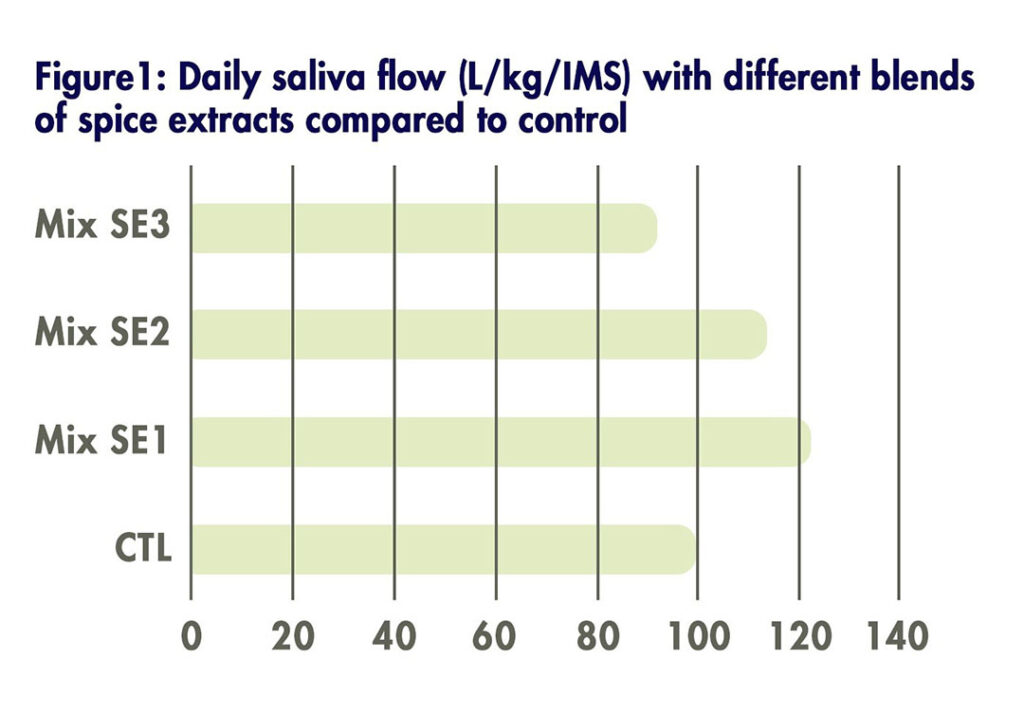
It is commonly accepted that the repetition of extended periods of depressed ruminal pH between 5.5 and 6.2 define a cow suffering from sub-acute ruminal acidosis (SARA). The precise kinetic study of ruminal pH led in our experiment allowed the calculation of daily indicators revealing a more representative picture of the evolution of acidity within the rumen. The dairy cows receiving the Mix SE1 (Oleobiotec Saliva Promoter) in their diet spent 12% less time in subclinical acidosis conditions.
Recommendations
Considering that up to 42% of the dairy herds are affected worldwide and SARA costs up to 375€/cow, the use of spices extracts from MixSE1 (Oleobiotec Saliva Promoter) into the diet is a natural solution to avoid economic and welfare implications. MixSE1 is recommended during feed transition, the spring and autumn grazing season and for high-producing cows and early lactation primiparous cows.


